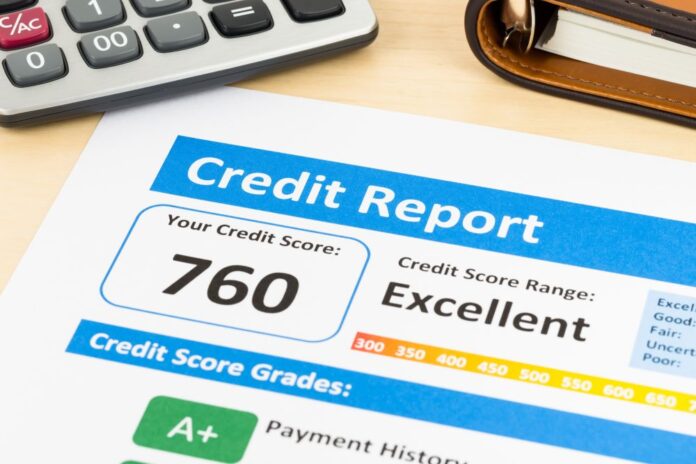Navigating the complex world of finance is a challenge faced by many individuals, families, and businesses. A particularly thorny aspect is the practice of obtaining loans or credit, which, if not managed with care, can lead to significant problems. It is the aim of this article to guide readers through the murky waters of responsible borrowing by offering tips and insights that are both practical and comprehensible. In the sections that follow, we shall delve into several key aspects of borrowing, providing advice on how to make educated and sensible decisions.
Researching and Comparing Lenders

In the age of information, a multitude of lending options are just a click away. While this offers great convenience, it also means that choosing the right lender has become more complex. Your search should begin with a clear understanding of your borrowing needs, then identifying reputable sources that can cater to them. Look for transparency in terms of loan conditions, past customer feedback, and the lender’s standing in the financial community. Going with online loans could prove to be the best option in many cases.
A common mistake is rushing into a loan agreement without exploring all available options. Instead, make the effort to consult with several lenders to understand the variations in what they offer. By doing so, you will have a clearer picture of which loan terms and conditions best align with your needs and resources. This careful comparison can result in significant savings over the life of the loan.
Reading and Understanding Loan Terms

Equally important is the critical evaluation of loan terms and conditions. Many borrowers overlook the fine print, only to find themselves trapped in an unfavorable situation later. Break down the agreement into manageable parts, and don’t hesitate to ask for clarification on anything that appears ambiguous. Highlight any clauses that may lead to additional charges or penalties, and ensure that you fully comprehend them.
Though this may sound overwhelming, taking the time to dissect a loan agreement is an invaluable step in securing a responsible loan. Consulting with a financial advisor or legal expert to review the terms can also be a wise move. This second opinion could provide insights that prevent future financial hardships, making the investment in professional guidance worthwhile.
Evaluating Interest Rates and Fees

A key aspect of any loan is the cost associated with borrowing. Interest rates and fees can vary widely, and understanding how they are calculated is essential. Pay particular attention to how the interest rate is applied, whether it’s fixed or variable, and how it may change over time. Consider how these rates align with your long-term financial goals and current ability to pay.
Similarly, a detailed examination of associated fees is essential. Some lenders may disguise the true cost of a loan with hidden charges and processing fees. Be diligent in identifying and understanding all applicable costs, as these can add up quickly and impact the overall affordability of the loan. Remember that a loan with a lower interest rate but high fees may not always be the most economical choice.
Being Cautious with Credit Cards
Source: brightmoney.coCredit cards are a prevalent form of borrowing and present unique challenges. Utilizing a credit card wisely requires a thoughtful approach, such as setting personal spending limits and fully understanding the card’s interest rate and fee structure. Many people are lured by introductory offers without considering the long-term implications of card usage.
Just as important is being aware of the pitfalls of multiple credit card accounts. Managing several cards can become confusing, leading to missed payments or overuse. Keeping track of individual card terms and responsibly using credit can help in avoiding unnecessary debt and maintaining a healthy credit score. A deliberate and mindful approach to credit card use can keep this convenient tool from becoming a financial burden.
Creating a Repayment Plan

Once a loan or credit is secured, the focus must shift to repayment. Careful planning, consistent payments, and constant monitoring are vital components in successfully managing a loan. Consider your income, essential expenses, and the loan payment to establish a realistic and sustainable plan. Utilize online calculators and budgeting tools to track progress.
Be prepared for the unexpected. An emergency fund or backup plan can be a lifesaver in times of sudden financial strain. Flexibility in your repayment strategy will allow you to handle unforeseen circumstances without defaulting on the loan. Being proactive in creating and maintaining a repayment strategy is the cornerstone of responsible borrowing.
Avoiding Borrowing for Non-Essential Expenses
Loans and credit should generally be reserved for essential expenses, such as home purchases, education, or business investment. Borrowing for non-essential items or experiences can lead to financial imbalance. Reflect on the necessity of the expense and whether it aligns with your long-term financial goals before taking on additional debt.
It is vital to recognize that every individual’s financial situation and values are unique. What may be considered non-essential for one person might be essential for another. Strive for a balance that fits your lifestyle and future plans. Responsible borrowing isn’t about deprivation; it’s about making thoughtful and informed decisions.
Recognizing Warning Signs of Overborrowing
Understanding when you might be borrowing too much is critical to your financial well-being. Constantly relying on credit to meet daily expenses, struggling to make minimum payments, or taking on new loans to pay off existing ones are alarming indicators. Recognizing these signs early can prevent a minor issue from ballooning into a significant financial crisis.
Seeking professional help at the first sign of trouble is a proactive approach that can save both money and stress. Many financial counselors and credit repair agencies can provide guidance on reining in debt and creating a manageable repayment plan. Early intervention and taking control of the situation can lead to a more stable financial future.
Building and Maintaining Good Credit

Your credit score is a vital part of your financial identity. Responsible borrowing practices contribute significantly to building and maintaining a robust credit profile. Regularly review your credit report for accuracy and take prompt action if you identify any discrepancies. Timely payments, low credit card balances, and a healthy mix of credit types are some ways to nurture a strong credit score.
Reckless borrowing can wreak havoc on your credit profile. Missed payments, high balances, and excessive loan applications can erode your creditworthiness. Be mindful of these potential pitfalls and strive to adopt practices that not only enhance your financial stability but also reflect positively on your credit report.
Final Thoughts
The path to responsible borrowing may seem daunting, but with proper research, awareness, and planning, it is a journey that can lead to financial empowerment and security. The guidance provided above serves as a roadmap, aiming to help readers make educated decisions about borrowing that align with their individual needs and aspirations. Whether you are contemplating a significant investment like a home or managing daily expenses with a credit card, approaching borrowing with mindfulness and intention can lead to a more balanced and prosperous financial life.









